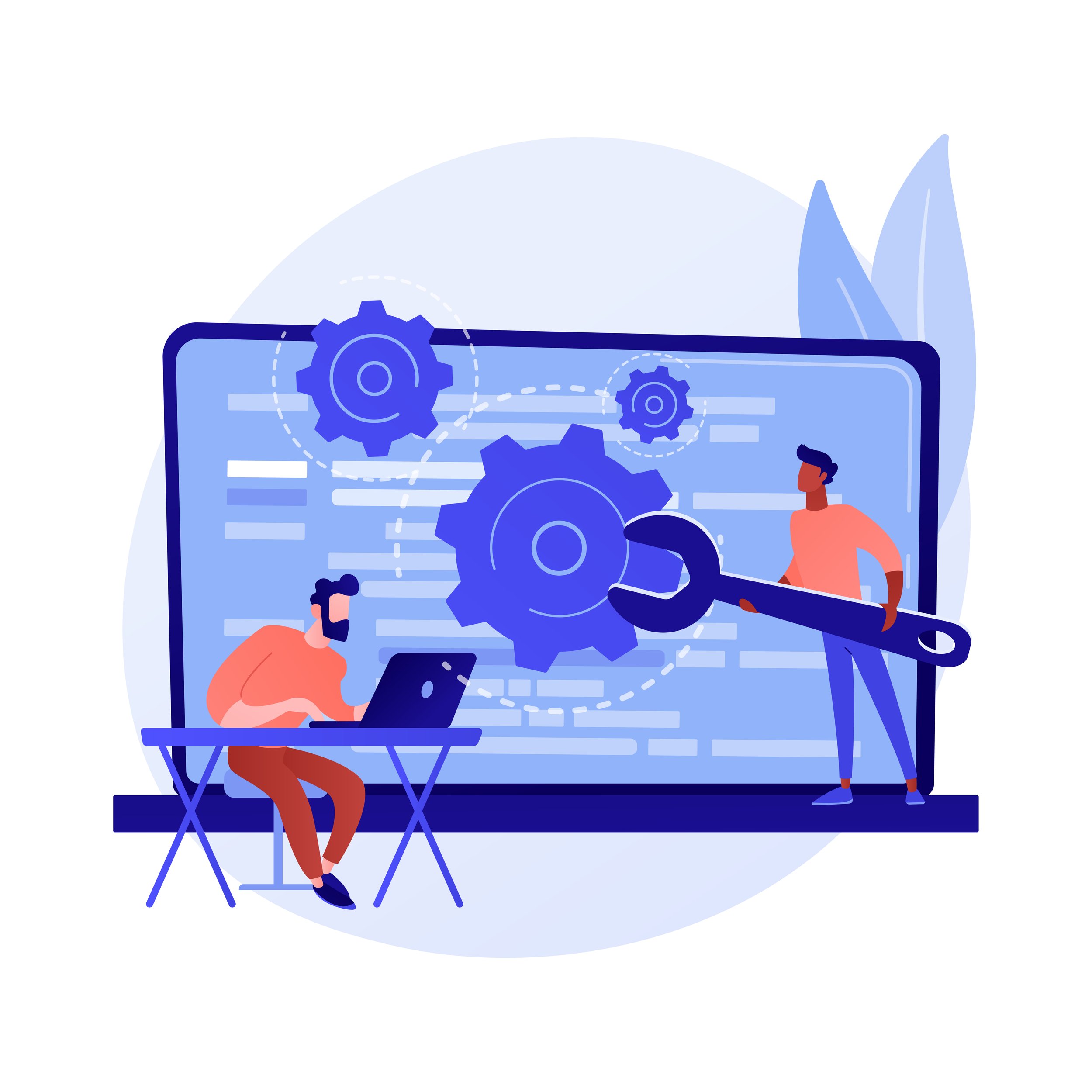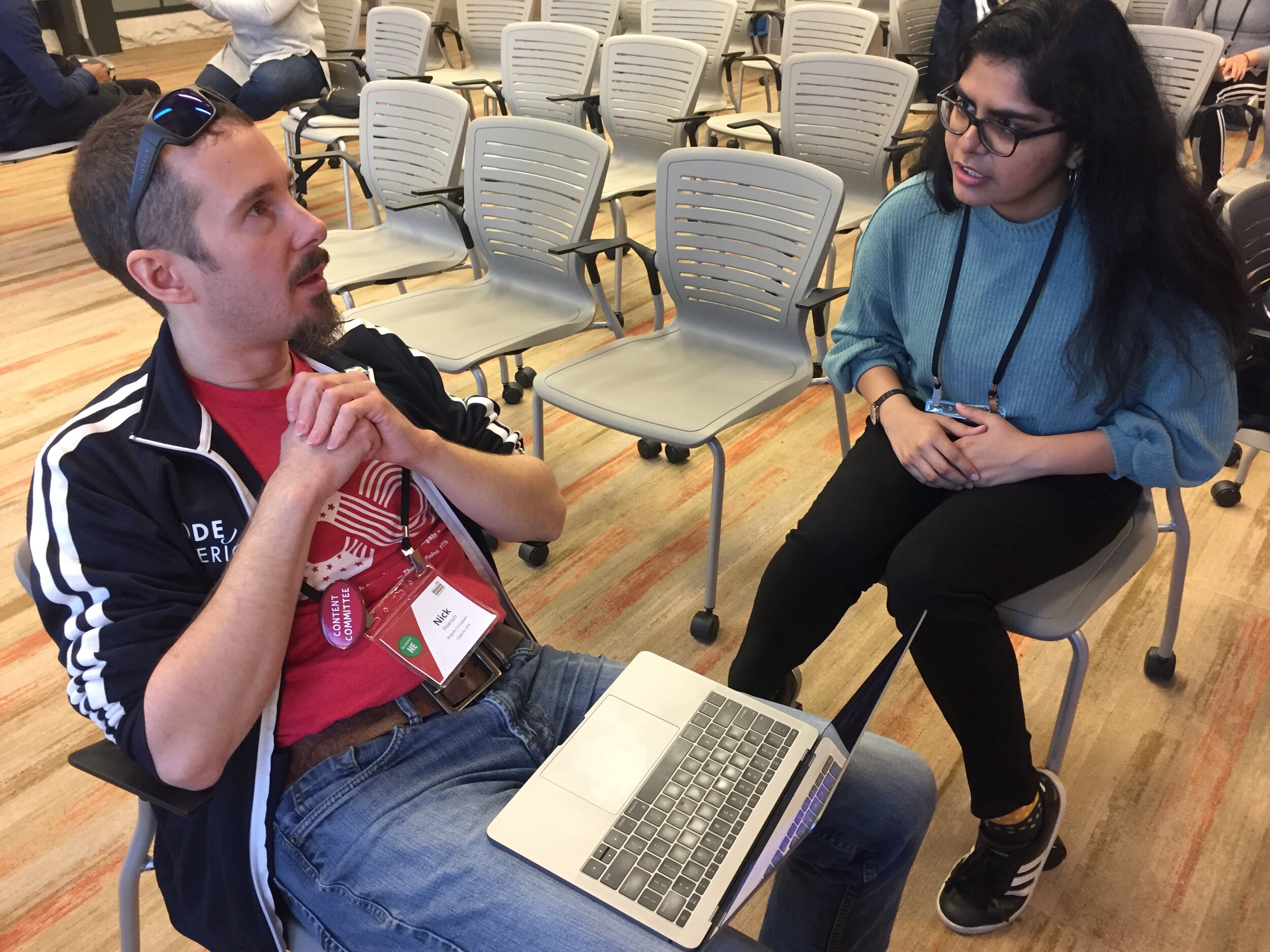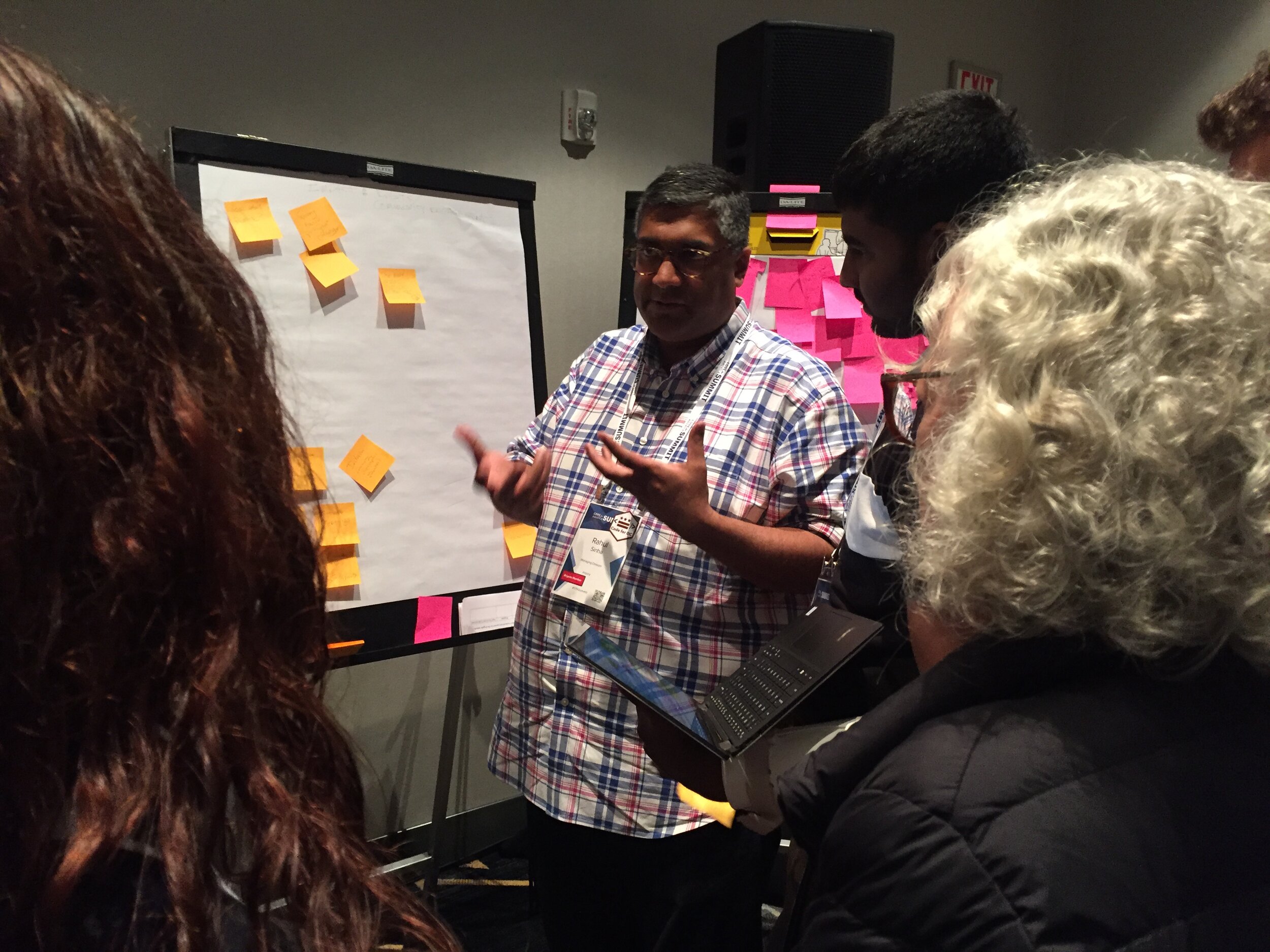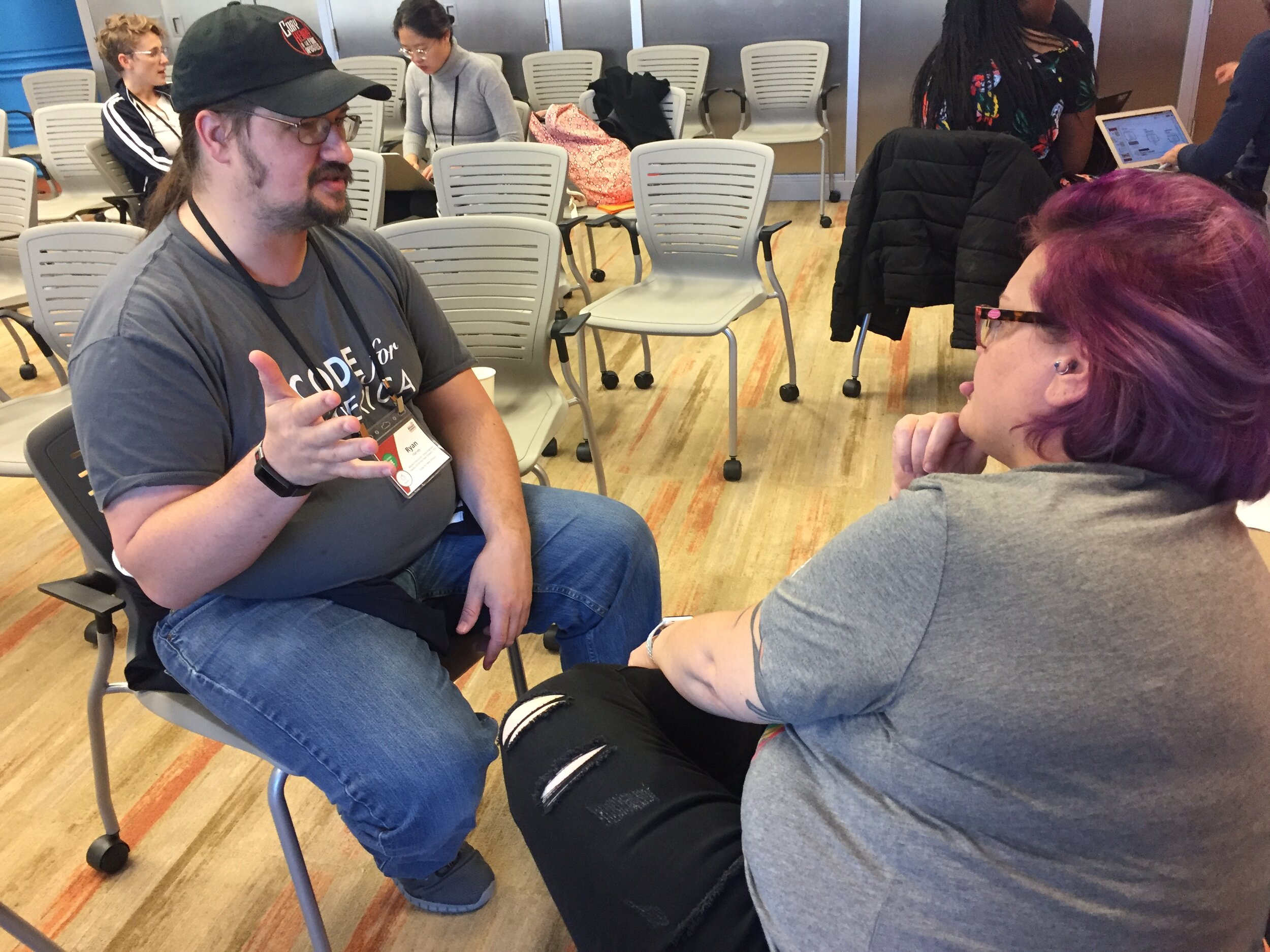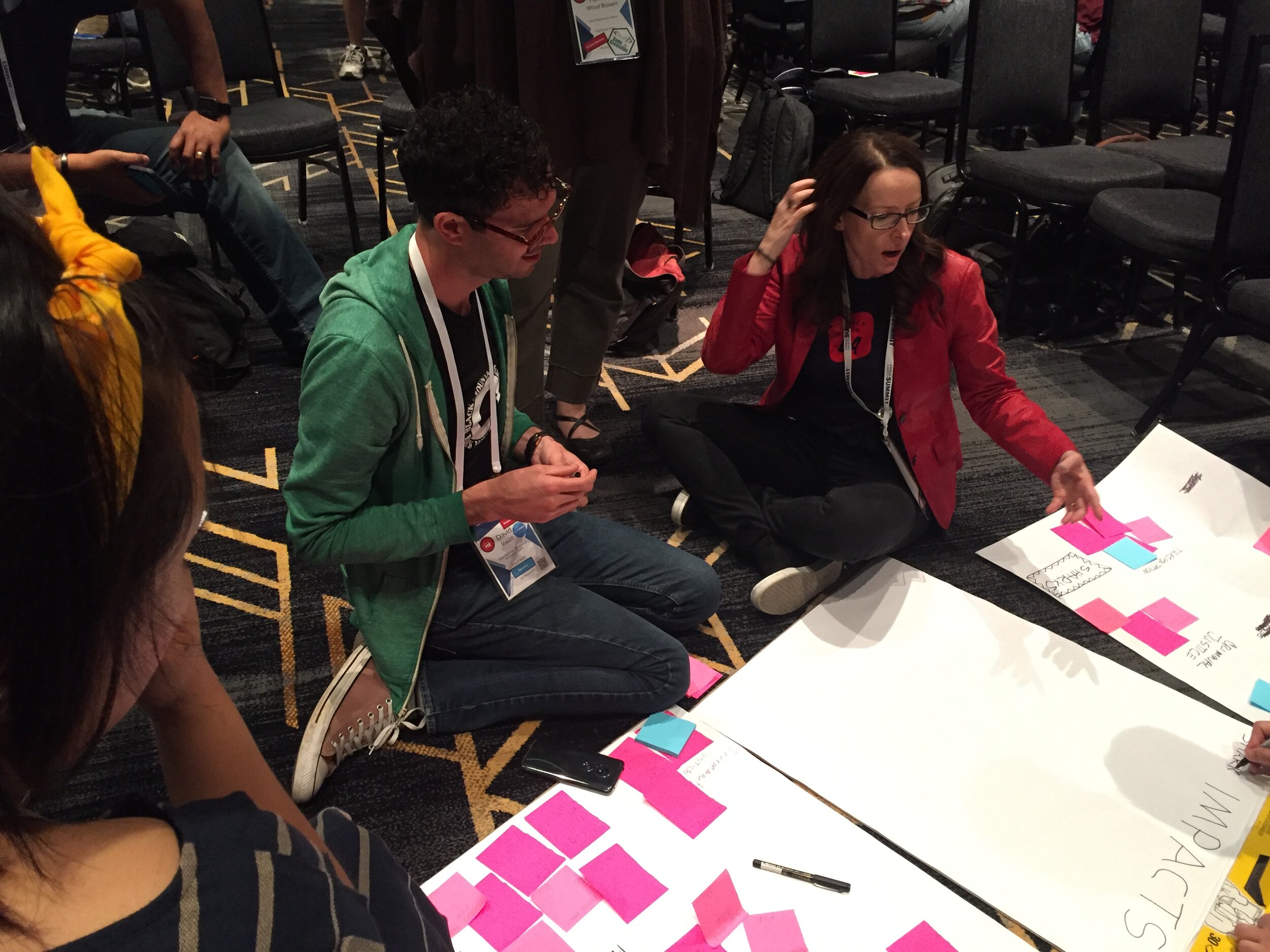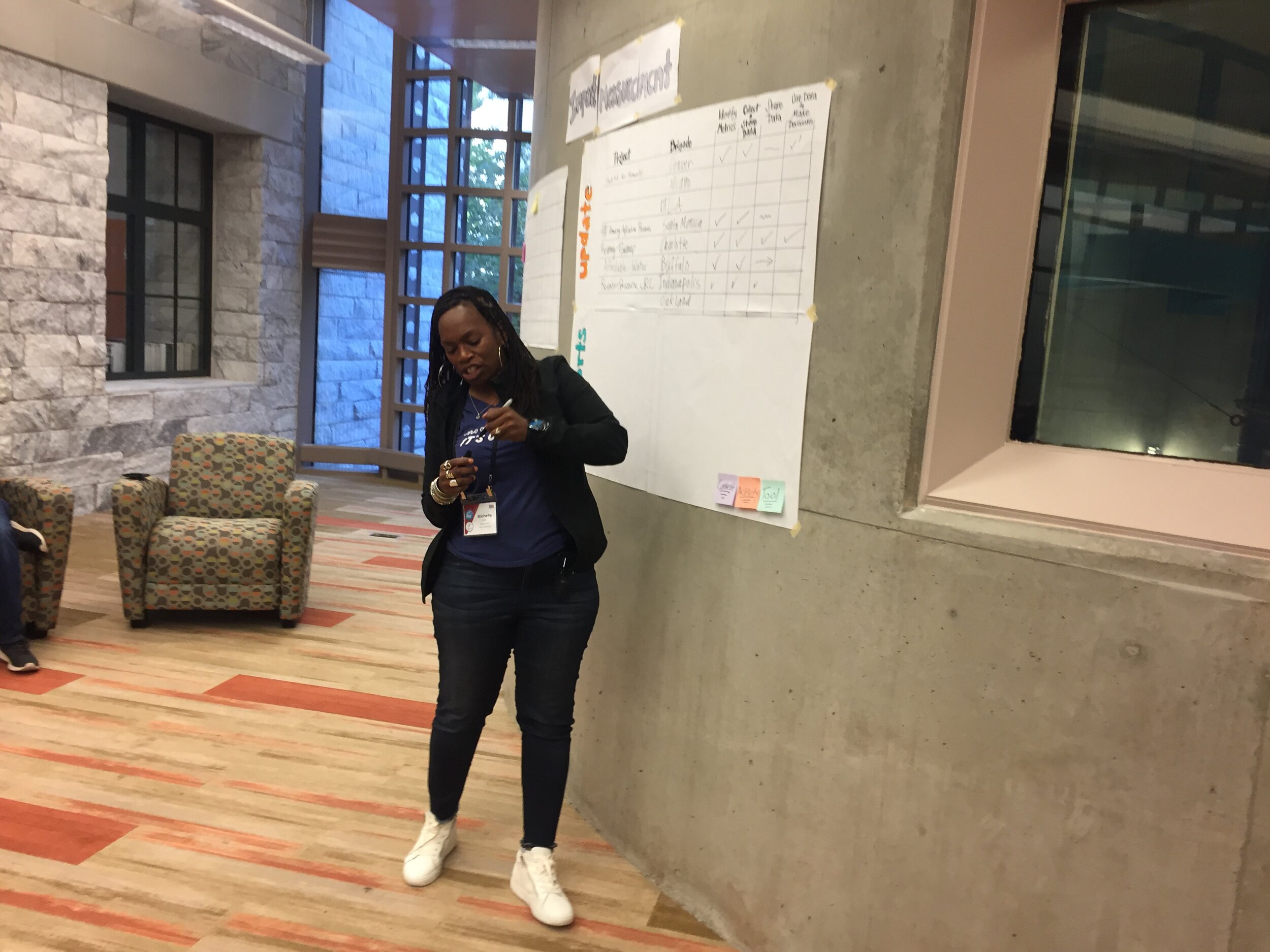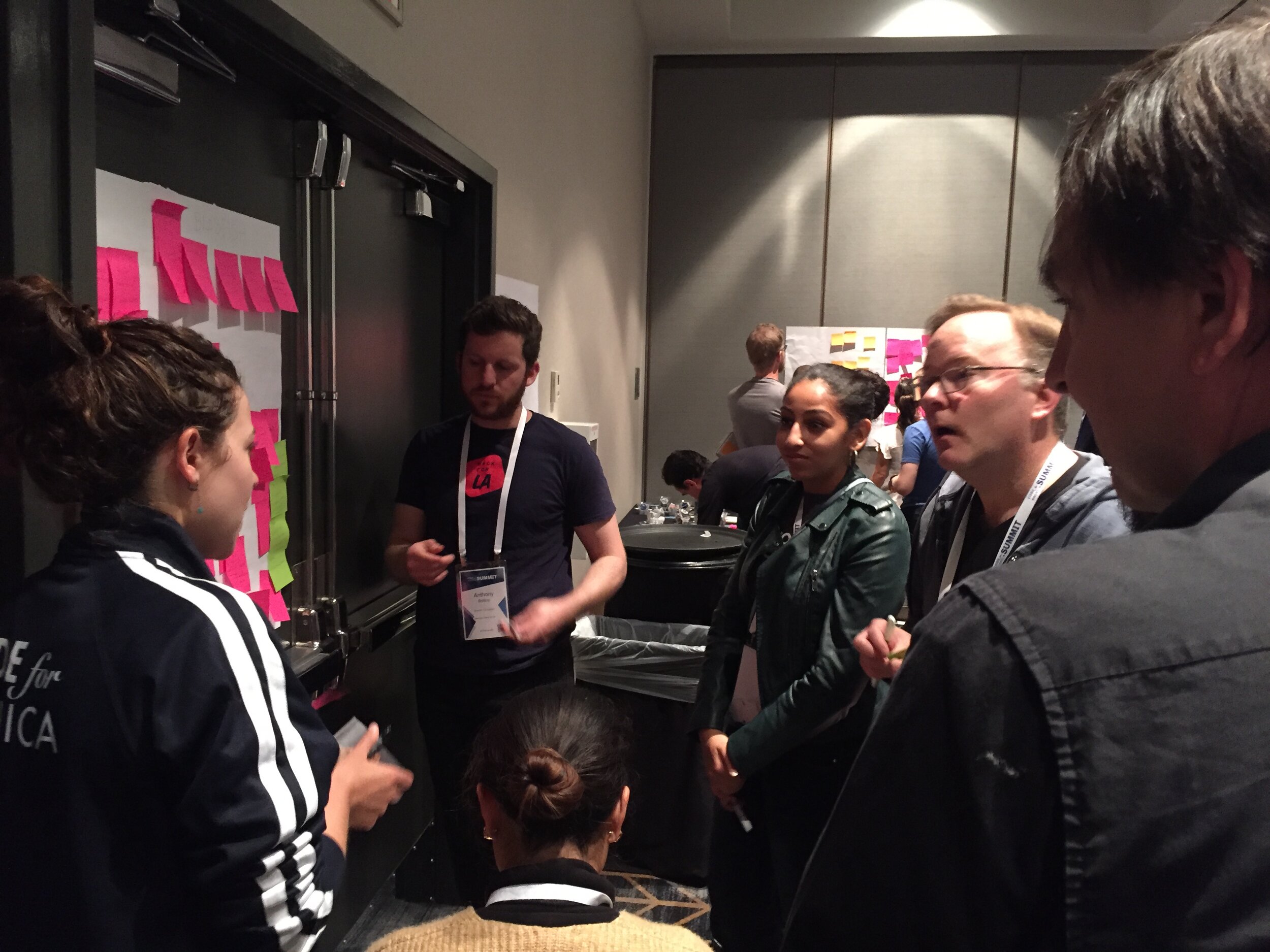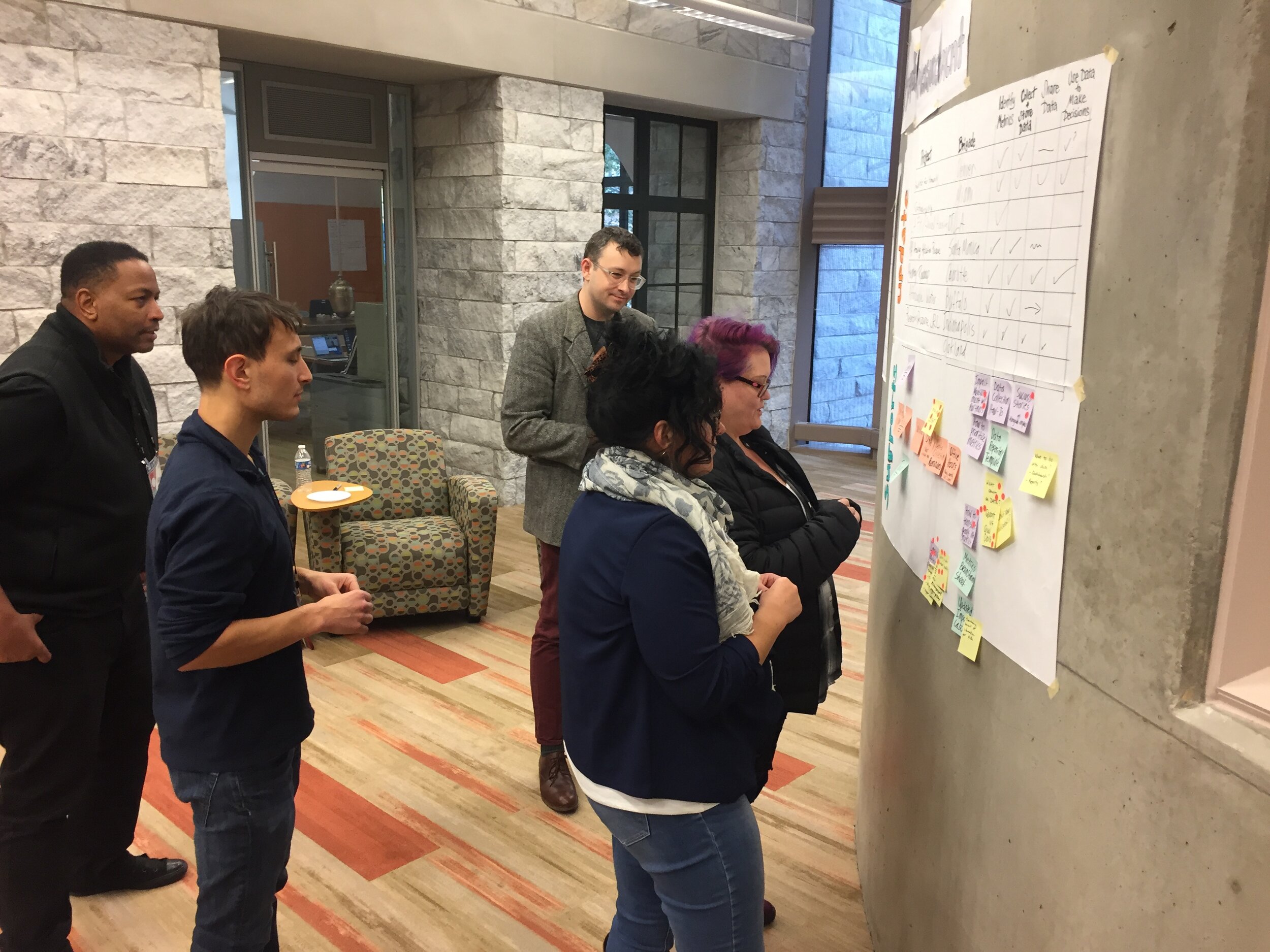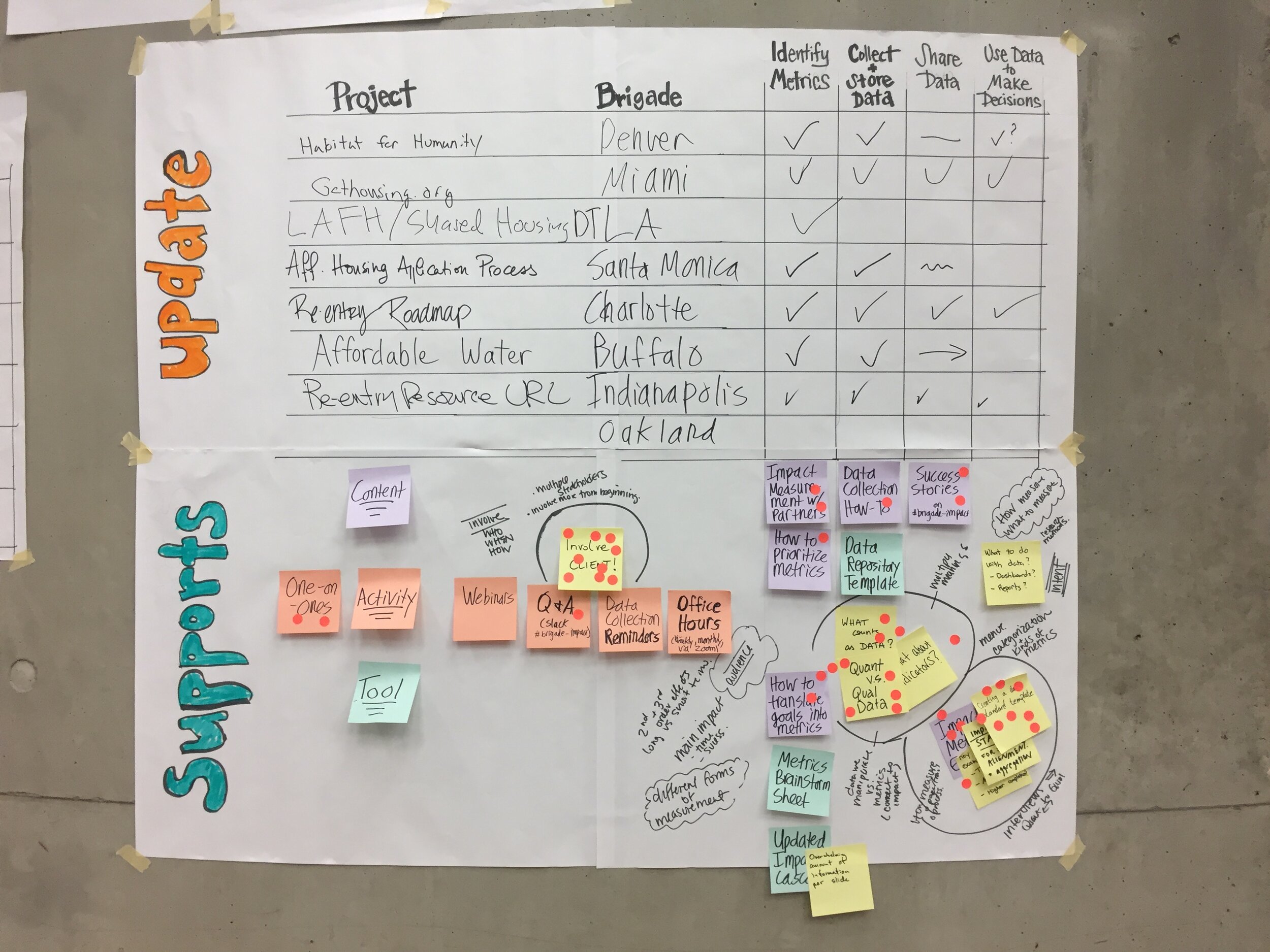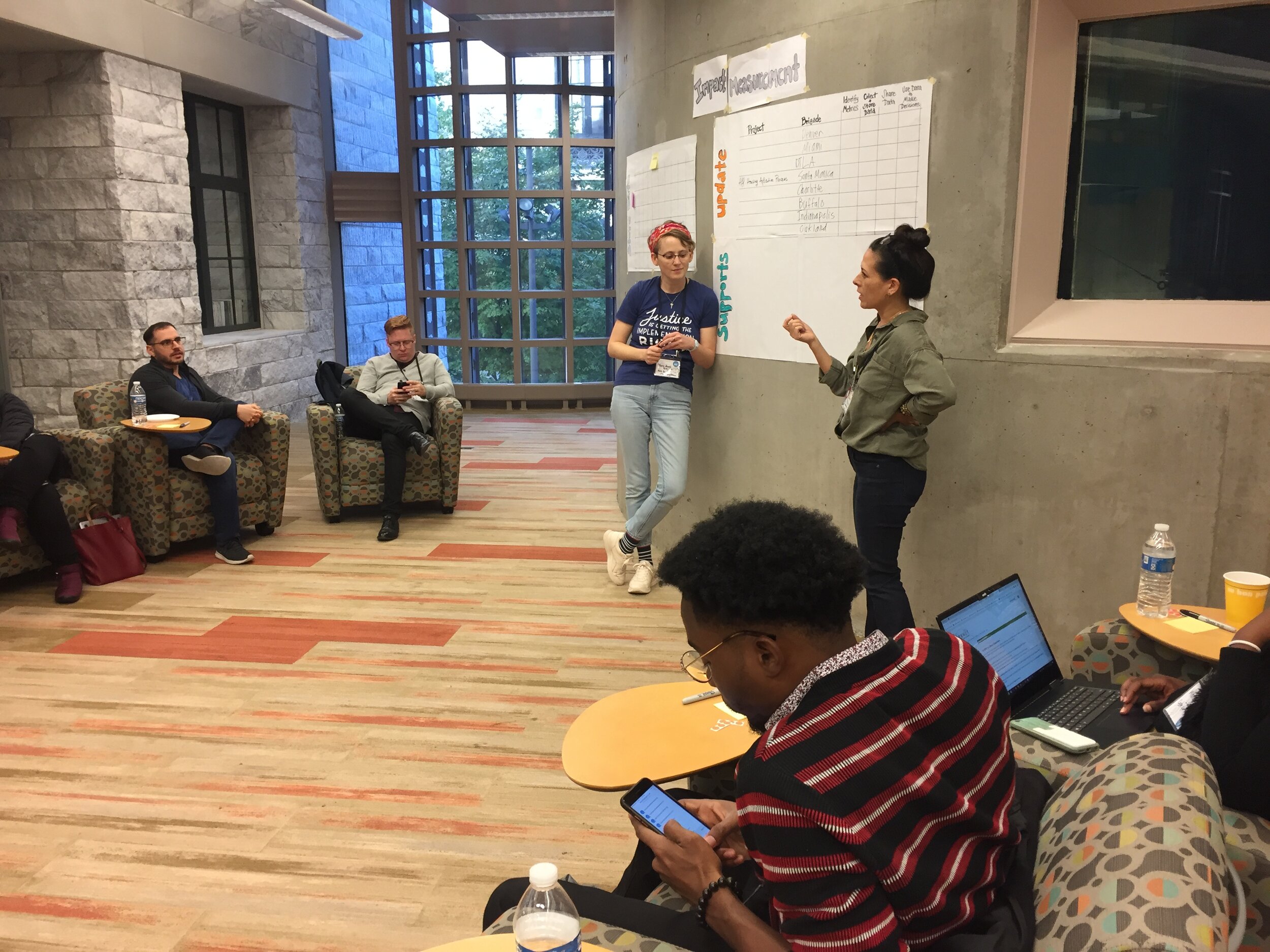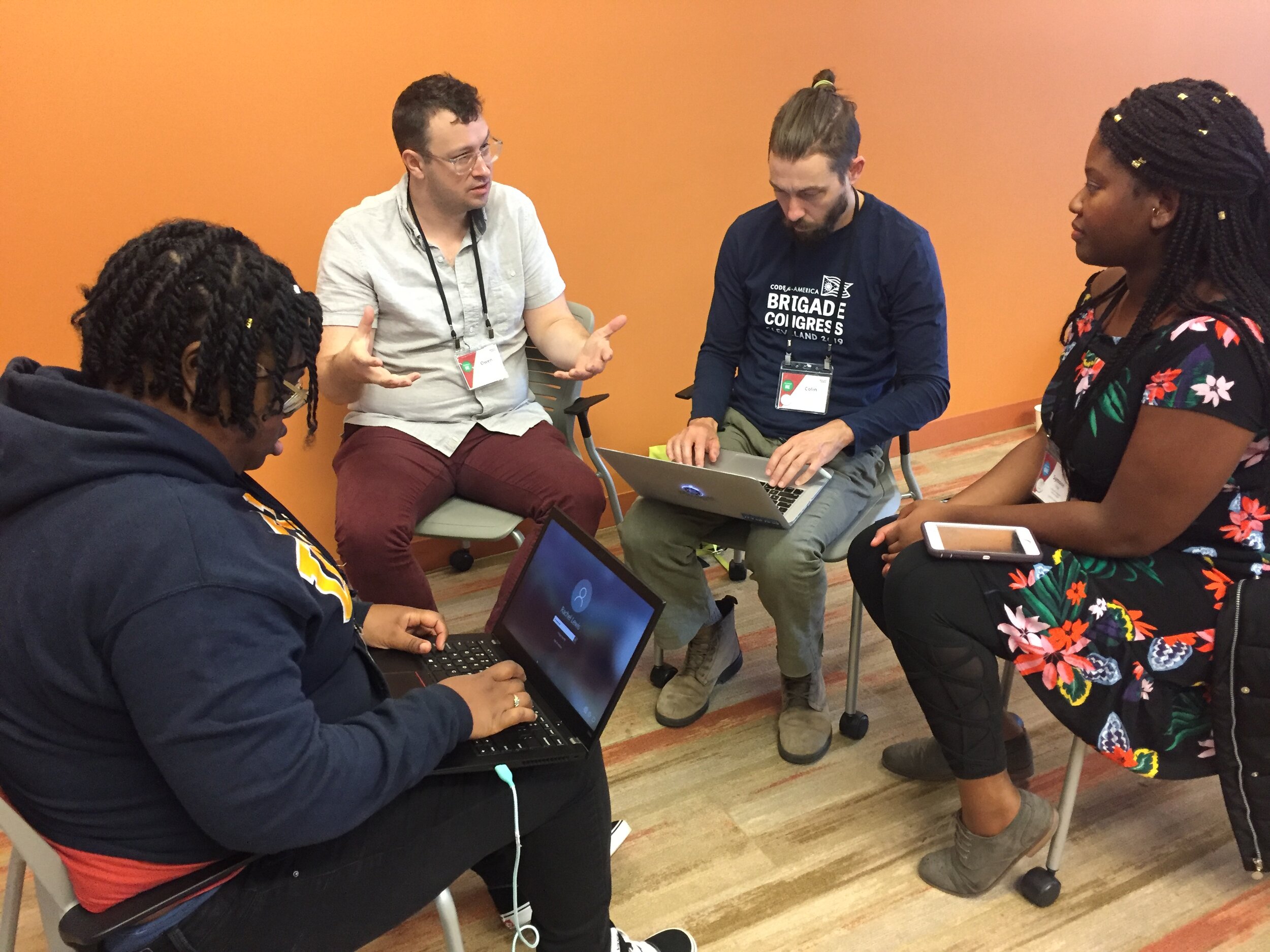Approach
Human-Centered Design
Create WITH, NOT FOR
Human-centered design (also called participatory design or co-design) is a method for solving collective problems by sharing knowledge and power.
We engage directly-impacted stakeholders with lived experience of the problem. Using interactive practices that leverage creativity, partners transform their knowledge and needs into collective solutions.
Services
We facilitate the collaborative creation of:
Knowledge
We use community engagement tools like listening sessions and interviews to learn and research with stakeholders.
Evaluations
We measure the impact of programs with the beneficiaries they serve.
PolicY
We co-design laws, protocols, and policies with the constituents directly impacted by them.
Decisions
We facilitate events where critical choices are made with the people directly affected.
Resources
We create toolkits, handbooks, and model with the people who will use them.
Capacity
We train others to use co-design methods to create with community.
To achieve the above we:
Center marginalized and excluded voices
Value lived experience and personal stories
Embody anti-racist, feminist, and decolonalizing values
Practice cultural humility
Co-organize and launch new initiatives
Co-create equitable power dynamics
Are trauma-informed and survivor-centered
Work virtually or in-person
Project Examples
Below are reports, slide decks, workshop photos, and other work products for three recent and ongoing client projects:
REIMAGINING ACCESS co-designed health policy with the Washington State Health Care Authority
OPEN SOURCE AI is co-designing tech policy with the Open Source Initiative
SUPPORTING SURVIVORS co-designed education policy with the Washington State Office of Superintendent of Public Instruction.
Reimagining Access
Co-Designing Public Health Policy
Final report for Reimagining Access, a 2022 project with the Washington State Health Care Authority to rethink access to substance use treatment with directly-impacted young people and their communities.
2. Open Source AI
Co-Designing Global Tech Policy
The Open Source AI Definition is a project with the Open Source Initiative. The project’s aim is to collaboratively define what open source will mean for artificial intelligence. The deck above gives an update on the definitional co-design process in early spring of 2024.
Photos from two 2023 co-design workshops for the Open Source AI Definition project.
Public report of recommendations from working groups analyzing four AI systems. Group members voted on which components should be required for an AI system to be licensed as open.
Vote tallies spreadsheet from the working groups. It was made public in the interests of transparency and audibility, which are crucial in building trust around co-design processes.
3. Supporting Survivors
Co-Designing Public School Policy
Summary report (above) and supporting deliverables (below) for Supporting Survivors, a 2022-2023 project with the Washington State Office of Superintendent of Public Instruction to develop recommendations on school responses to sexual assault with student survivors and their peers. All student quotes and comments are shared pseudonymously and with consent.
Report on school mandatory reporting procedures, centering student needs.
Student quote from the summary report.
Student comments on a sexual harassment policy.
Student quote from the summary report.
Slide presentation on the project created for the Transforming the Trend Conference.
Final report (above) for HearMeWA, a youth safety and well-being program managed by the Washington State Office of the Attorney General. Our role in the 2023 project was to co-design a youth advisory group for the program, to ensure the needs and voices of young people are centered and empowered in the new program.
Case Studies
WAshington STATE HEALTH CARE AUTHORITY
The Washington State Health Care Authority (HCA) is the state's largest health care purchaser. They hired Do Big Good in 2022 to help close the gap in youth substance use treatment. To jump-start this systems change, Do Big Good conducted listening sessions virtually and in-person, reimagining treatment with youth across the state who have substance disorders and with their adult allies.
WAshington State Office of SuperIntendent of Public Instruction
The Washington State Office of Superintendent of Public Instruction (OSPI) oversees the state’s K-12 public school system. In 2022 they hired Do Big Good to develop recommendations on school responses to sexual assault with student survivors. The project required student listening sessions, adult stakeholder interviews, policy review, and academic research.
SPOKANE FOOD SECURITY COALITION
Spokane Regional Health District's Food Security Coalition unites over 40 organizations strengthening the food system in Eastern Washington. In the spring of 2022, Do Big Good facilitated two virtual workshops to develop a community outreach strategy with adults impacted by food insecurity.
IMPACTA LATAM
In 2021, Do Big Good partnered with international donor National Endowment for Democracy and local Guatemalan nonprofit Red Ciudadana to launch the Impacta Latam network and facilitated the network’s first action, the co-design of a toolkit on impact measurement with Latinx activists working to strengthen democracy and governance.
Open Knowledge Foundation
The Open Knowledge Foundation (OKF) is a global nonprofit network whose mission is to create a world where all non-personal information is open and free for everyone to use, build on, and share. In 2021, they hired Do Big Good to help them co-design a measurable, participatory strategy to relaunch the organization under their new CEO.
Code for America
Code for America is a tech nonprofit that believes government can work by and the for people in the digital age. In 2019, they hired Do Big Good to co-design a new model of impact measurement with their volunteers across the country. The results in-person and virtual process, piloted by brigades across the country, resulted in the Impact Cascade model and process.
University of Michigan
University of Michigan's Center for Socially Engaged Design (C-SED) hired Do Big Good to co-design a two-part train-the-trainers workshop with their graduate facilitators in the spring of 2022. The focus was Do Big Good’s Decision Cascade, a model we developed to make power dynamics visible in design and decision-making.
Photo Gallery
Above: co-design workshops with and for Code for America (2019)
all graphics by Vector Juice


























